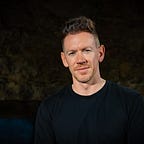Is Project-Based Learning Emerging?
My time in Queensland gave me a real-world example of changing education frameworks.
There have been many false dawns relating to project, challenge and inquiry-based learning. Many educators understand Project-Based Learning (PBL) evangelical’s message of the power of “problem-solving” and “creative thinking”. Sadly the concept in modern education has never caught fire.
Ultimately the idea never wholly died (from Dewey’s early messaging around the topic); the PBL message about a curriculum focused on student autonomy, purpose and mastery seem more relevant now than ever in a shifting reality that adults are struggling as much as our student learners to grasp.
Co-learning in an age of low teacher morale and burnout could offer much.
In this article, we wanted to create more context on how and why we think PBL is emerging within many systems that were once stoically resistant to changing curriculum practices. In addition, we want to reflect on the place and role of sustainable development within this PBL emergence.
“I think it’s an amazing experience for kids to make this, I really got excited. And something here is very authentic.
—Amazed by Making, How do Teachers Describe Their PBL Experience, Levy and Dor (2016)
As seen in the work by the Kibbutzim College of Education in Israel, teachers feel a deep sense of achievement in creating a multi-layered learning environment for students in a world of changing reality.
Examples of the changing mindset around PBL were highlighted in 2021 by Lucas Education Research that stated from the University of Southern California and Michigan State University compelling evidence that project-based learning is an effective strategy for all students, outperforming traditional curricula not only for high achieving students but across grade levels and racial and socioeconomic groups. Moreover, from my time in Queensland, I saw extensive state legislation and strategy promoting real-world curriculum guidance on Global Competency Frameworks that can help educators bring multidisciplinary PBL into statewide classrooms. This is further enhanced by the strategic plan by further focusing on delivering excellence and a more profound link to connecting and collaborating with key strategic partners across the system.
As cited by the Budapest International Research Centre in Linguistics and Education, the emergence of Project Based Learning will also advance continuous learning and aid our collective vision of education for sustainable development. See the work of the Spaceship Academy for more details of innovative solutions around sustainable curriculum design.
In the end, we must expect students to care deeply about issues when they have ‘skin in the game’ in designing autonomous projects that can be solution-focused. For example, a student at THINK Global School, our sister organization, created a project around mental health and wellness with the driving question, “How can I de-stigmatize mental illness through information and awareness”?
As can be seen from the project, deep learning comes from authentic links to mastery and purpose (here, there is a sense of serving others); as the student states, “I learned so much from this experience, and I am so grateful that I got the opportunity to complete this project and hopefully help at some people understand this topic better”.
When teachers’ morale is so low and many claims to be demoralized by the current systems, the excitement generated about implementing PBL and practices must give all of us who care about education hope for optimism about the future, as we witness so many innovative education ideas emerging.
Any enthusiasm towards improved teaching and learning is a good thing. Academic and education leaders must embrace this flow of change that PBL allows on the teachers’ side of the profession.
This seems to be a noticeable advantage of any innovative pedagogy that attempts to tackle multi-layered learning in a constantly changing reality.
Follow Russell on LinkedIn and the THINK Learning Studio.
